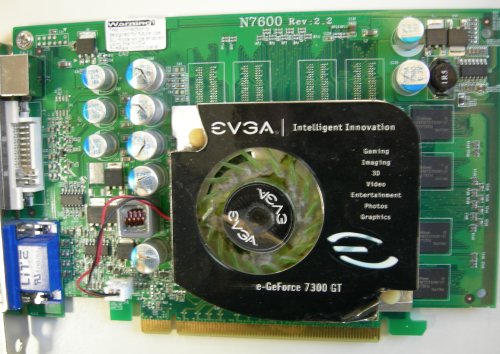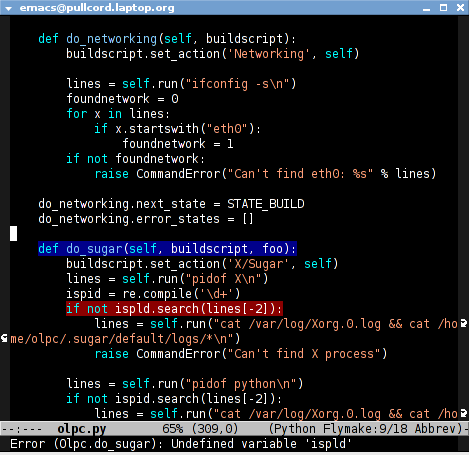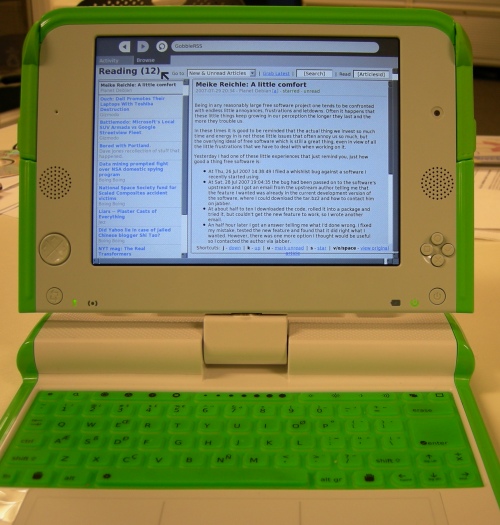Lawrence Lessig has posted a video on why he is for Barack Obama. SJ Klein, Madeleine Price Ball and I just finished transcribing it. Lessig’s video, and our transcription, are available under the Creative Commons Attribution 3.0 license.
“A request”
I received a strange request from someone I didn’t know in my inbox the other day — a letter asking me to make a video “enumerating why I support Barack Obama”. As Julie Cohen wrote, “Many of my smartest friends have been recently leaning towards Clinton” and that, she said, was because “I believe that his speeches are not detailed enough regarding his policy strengths” and she concluded “now is the right time for you to make a video, I know you can change a lot of minds.”
Well I doubt I can change a lot of minds, Julie Cohen, but I do agree with you that this is an extraordinarily important election.
But it’s important not because of the details about Barack Obama’s policy strengths. I believe his policies are strong, especially the policies I know something in particular about — his technology policies are extremely strong. But policy differences between these two candidates are actually quite small. As the New York Times said in their editorial endorsing Hillary Clinton, “On the major issues there is no real gulf separating the two.”
So in policy alone I’m not sure that there’s any good reason to prefer the one over the other. Yet I still think it extraordinarily important that one win over the other: namely Barack over Hillary Clinton. For what’s at stake here, I think, is something much more important than the particulars of some laundry list of policy disagreements that there might be between them.
So what is that something important — why should one support Barack over Hillary?
Well I think there are three factors to consider here: character, integrity, and what each candidate would do.
So let’s start with character. In particular I’m thinking about a certain kind of moral courage. The question of whether the candidate is calculating in the face of right, or whether in the face of knowing what’s right or consistent with his or her principles, he or she chooses that answer regardless of the consequences.
So for example, one feature of this man’s presidency (Bill Clinton), a man I supported for president (and think he did an extraordinary job as president), but one feature (or let’s say bug) was his consistent refusal to stand up for for what were strong principles, at least as he articulated them, in his campaign. So for example within a couple weeks of coming into office he had given up a commitment to let gays serve openly in the military. It was expedience that led him to that result rather than standing and fighting on the basis of principle.
Now, the question is whether Hillary is like Bill in this respect. And I think to be fair we have to say you can’t really know, we haven’t seen enough. There are things to make one suspect that she lets principle yield in the face of expedience.
So, for issues as small as whether she would call for presidential debates to be left free so that people could download them and remix them without fearing copyright restrictions, Hillary — unlike Barack and John Edwards and others even on the Republican side of the debate — refused to endorse this call, fearing, perhaps, that it would alienate some of her strong pro-copyright interests in the Democratic party.
To issues as large as Iraq, where here the decision she made was the wrong choice. But she made that choice in the face of overwhelming political pressure to go along with the president. Now maybe she didn’t know it was the wrong choice, maybe she actually believed what she did was right; though it’s important to remember that among the Democrats not facing re-election at the time of this war, a majority opposed the war. And for senators running for president — therefore susceptible to this political pressure more than anybody — all but one endorsed the war, including John Edwards.
So while we can’t know about this feature of her character, I think all of us remember believing that when she voted in favor of the war at that time, rather than taking a strong and principled view that a majority of the Democrats not facing re-election did, it was an expression or sign of a certain kind of weakness that reminded many of us too much of the presidency of her husband.
This is the moral character — or lack of moral character, moral courage — that I fear most about this candidate.
Now, in this respect I think Barack Obama is exactly the opposite. There’s one clear example of this all of us know, that’s the example of Iraq. And we have to remember here just how hard this was. We have to remember the insanity of us, or of the United States, at this time. In October 2002, as the drumbeats for war were increasing, Barack Obama took to the streets of Chicago and made a strong call to stop the entry into this war. As he said:
I stand before you as someone not opposed to all war in all circumstances. I don’t oppose all wars. What I’m opposed to is a dumb war, what I am opposed to is a rash war. A war based not on reason, but on passion; not on principle, but on politics.
That was precisely the right description of the war that led us to Iraq, and this was not a popular position for a candidate for the United States Senate to take, especially in a State that had a Republican governor. Yet Barack Obama took this position. And in this one respect at least, it shows that he has a certain kind of moral courage. Not because he was smarter, not because he had access to better intelligence about Osama bin Laden, but because he had the moral courage to stand up for what was right in the face of very strong political opposition.
This is one clear example — perhaps the most important moral and political judgement of the last thirty years, signalling he is much less likely to make the same kind of cowering mistake again. That’s character.
Think now a little bit about integrity. When I think about the worst in politics in the last fifteen years there are two features that stand out for me. One is the lack of moral courage, of again candidates and presidents like Bill Clinton, and second, a lack of political decency, in particular around the elections that got this man (Bush) into office orchestrated by this extraordinary figure, Karl Rove. Think about Karl Rove’s tactics in South Carolina, where he made racial suggestions through push-polling that drove many Republicans away from John McCain, probably costing McCain the election. Suggestions that were false and were extraordinarily unfair to make, and that were made for the purpose of defeating the opponent.
Or think about the swiftboating of John Kerry, by taking his strongest character — the fact that he alone of all the candidates had voluntarily gone to war to defend the interest of his country — an unpopular war, while the President and the Vice-President found a way to escape that war. What Rove did was to find a way to take this strong feature and make it a target of an attack, by suggesting false and misleading facts about his service in Vietnam, to weaken this feature of his character: that’s swiftboating.
I remember when watching these things happen, thinking to myself “How in America can these sort of techniques win?”. Yet the worst in this campaign, was to watch this kind of Rovian Republicanism become Rovian Democrats. Think for example about the issues around the war: Hillary Clinton and Bill Clinton have launched an attack on Barack Obama, claiming he has been “inconsistent” about the war. Here’s what she said in one of the debates:
It was after having given that speech, by the next year the speech was off your website. By the next year, you were telling reporters that you agreed with the president in his conduct of the war. And by the next year, when you were in the Senate, you were voting to fund the war time after time after time.
Now as Hillary Clinton knows, this statement is both false and misleading. It’s false because in fact, the speech that she says was removed from Obama’s website remained on Obama’s website throughout the course of the next year. You can know that by going to this site, The Archive org’s Wayback Machine, and you can actually see copies of the web taken in every couple of month intervals from 1996 on. And here’s a copy of the Barack Obama website — we have to decode it a bit by looking at the very top line — this is a copy of February of 2003, there’s Obama’s speech.
Here’s a copy taken in April of 2003, there again is Obama’s speech. June, it’s still there… August, it’s still there… October, it’s still there. It was there the whole year. And even after that year Barack continued to lead his Foreign Policy section by describing his strong and consistent and principled opposition to George Bush’s decision to take us to war.
But the charge is also misleading, because there’s no inconsistency with opposing the war and actually supporting funding for the war once it has been launched or supporting funding for our troops once they are there. Think about Howard Dean, who was the strongest candidate in the 2004 election opposing the war: he absolutely and clearly signalled that even though he opposed the war he would not cut off funding for the troops or withdraw them immediately if he became President.
This is a kind of swiftboating — it takes the strongest feature of Barack’s political character here, the fact that he made the right decision about the war, and tries to weaken it by alleging false and misleading facts about that decision.
Or think about the brou-ha-ha around Ronald Reagan. At a Nevada editorial event, Barack said this about Ronald Reagan:
I mean, I think Ronald Reagan changed the trajectory of America, in a way that, you know, Richard Nixon did not and in a way that Bill Clinton did not. He put us on a fundamentally different path, because the country was ready for it.
And then a little later he said:
And the Republican approach, I think, has played itself out. I think it’s fair to say that the Republican party was the party of ideas for a pretty long chunk of time there over the last ten, fifteen years, in the sense that they were challenging the conventional wisdom.
This statement says two things:
- a), that Reagan was a transformational president;
- and b), that the Republicans were a party of ideas.
Both statements are obviously true.
What Barack did not say, however, was a) that he agreed with Ronald Reagan’s views, or that only the Republicans had ideas. And here’s how that statement was used by Hillary Clinton in the debate at Myrtle Beach just before the South Carolina primary:
She said, quote:
He has said in the last week that he really liked the ideas of the Republicans over the last ten to fifteen years.
Now you saw what he said, and you can see that what she says here is just plainly false; Rovian in its character. But finally, consider this issue around the question of a woman’s right to choose whether to terminate a pregnancy or not. Hillary Clinton and her campaign have campaigned on the idea that Barack Obama is weak on “choice”. In mailings in both Iowa and New Hampshire she has claimed he’s weak on choice, and in public speeches to women, and young women in particular, that he is weak on choice.
Lorna Brett Howard was a supporter of Hillary Clinton, a former president of the ChicagoNow! organization. But she was so outraged by what she called the “false statements” about Barack’s campaign that she made this video, now appearing on YouTube where she asserts first that 100% ratings were received by Barack Obama during his time as Senator in the Illinois State Senate; and that the fact the he supported women’s rights had never been questioned, including the right to choose.
Here the campaign — the Hillary Clinton campaign — is totally ignoring the truth, and this time, ignoring the truth with a certain important consequence, as Lorna Brett Howard said:
And this line of attack on an issue that I care about so deeply is not acceptable to me.
And because it wasn’t acceptable, she publicly switched her support from Hillary Clinton to Barack Obama, switched her support because she had been using — Hillary Clinton had been using — the kind of techniques that we Democrats thought were only at the level of Republicans.
This is a measure of a certain kind of integrity, an integrity that I think we should all demand that the political process reveal.
Now people will say in response to this “Oh, that’s so naive. This is the way that politics is. All politics is like this. You can’t punish one candidate because they’re using the style of politics.”
But this is the way all politics will be only if we reward the behavior of people that employ this Rovian style of political behavior. We will get more of it if this is the kind of behavior we reward, and that’s a good reason, following Lorna, for people who support Hillary Clinton to either criticize this behavior of her campaign or to switch support to Barack Obama.
But finally, most important is the distinction between the two candidates about what they will do. But to see this we have to think about what we expect this election to be about. The rhetoric around this election is focused on “change”. But what is this idea of change? What do the candidates mean by it? Here’s what Hillary Clinton said in one of the debates:
Well, let me say first, that I think we’re all advocating for change; we all want to change the status quo, which is George Bush and the Republican domination of Washington for so many years.
When I heard that, I thought to myself “Is that really all we’re trying to achieve in this election, to get the Republicans out of office?”. Because as I heard candidates like Edwards and Obama, I heard a call for a change much more fundamental. A change in how Washington runs; a change in the power of money or corruption in how Washington runs. A change in the very core of the system that has produced the results that have slowed responses to global warming or slowed the adoption of healthcare. Edwards and Obama have evinced their support for this strong version of change by refusing to take any money from lobbyists or PACs: their target, at least as they see it, is fundamental reform of the system.
Hillary Clinton, here, is very different. Here is a speech she gave at the yearly Kos convention last summer:
“Senator Edwards has really a very straightforward question here, which is will you continue to take money from lobbyists or will you take his position…”
“Yes I will. I will, because you know a lot of those lobbyists, whether you like it or not… represent real Americans.”
No-one doubts that the lobbyists represent real Americans; though of course they also represent lots of foreign entities as well. But the question is not who they represent, the question is whether their influence represents — mis-represents — solutions for America. Whether the effort they have and the power they have in controlling the agenda and access to members of Congress shifts the way Congress responds to the issues. But it’s very clear given what she said, that when she speaks about change she speaks of a different kind of change; not the real change that Barack Obama puts at the center of his objective for a new administration. But there’s a second kind of change that I think is actually much more important than this change in how Washington works. This is a change for peace.
We have to understand of course that the presidency has become something very different from an accountant or CEO of the Government. The presidency is a leader, a leader who inspires moral courage, who inspires us to be something different, to transform us, and inspires the world in how the world sees us.
Here I think there is no comparison betwen these candidates. Hillary Clinton is good enough, she’s a good enough speaker, she’s very powerful and responsive, she’s a great debater. But in this debate, Barack Obama is just off the charts. Remember his intervention at the Democratic Convention in 2004:
“Tonight is a particular honor for me because, let’s face it, my presence on this stage is pretty unlikely. My father was a foreign student, born and raised in a small village in Kenya. he grew up…”
And then, on his campaign too:
“There’s no such thing as false hopes. But what I know deep in my heart is that, we cannot bring about change unless we are unified. Unless we do it together. Change does not happen from the top down, in America or anywhere else. It happens from the bottom up!“
This is a man who will inspire as he leads. He will inspire all of us, across racial lines, and gender lines, across class lines, across age. He will inspire us because he can capture, in a way that very few presidents in the last hundred years have been able to capture, the imagination of a generation.
But there’s one more crucial way in which Barack Obama can inspire, distinct from how Hillary Clinton could ever hope to inspire, and that’s the inspiration he would offer towards peace. We in this country need to acknowledge to the world a certain mistake that most of us understand we made. At the height of insanity, after this extraordinary and horrible bombing, of our own citizens on our own territory, we were led into war by a president who didn’t care to pay attention to the facts.
This was the biggest political blunder, perhaps ever, that an American president engaged. It was extraordinarily destructive — destructive to us and to them. If we’re going to find peace here, then that peace will only come if we can signal our own change. A change that they understand is a change in who we are, a change that they can see.
So I want you to shut your eyes and imagine what it will seem like to a young man in Iraq or in Iran, who wakes up on January 21st, 2009, and sees the picture of this man as the president of the United States. A man who opposed the war at the beginning, a man who worked his way up from almost nothing, a man who came from a mother and a father of mixed cultures and mixed societies, who came from a broken home to overcome all of that to become the leader in his class, at the Harvard Law Review, and an extraordinary success as a politician. How can they see us when they see us as having chosen this man as our president?
There can be no clearer way that we could say, that we could say that the United States could say, that we have changed, than by electing this man. There is no way we could more clearly move on toward peace than this. He represents the very best of who we are, the best of character, of integrity and ideals. And someone who opposed the war from the start.
So Julie Cohen, here is my request: I agree with you nothing could be more important than this election and this candidate; but nothing could be more important also than solving this impossible war; not just by bringing the troops home, but also by enabling the peace. By enabling that peace, by beginning a process of forgiveness and of hope. That is the great hope that this new generation, represented in this leader, Barack Obama, gives us. And gives the world.
Credits
Flickr photos, cc-licensed : Joe Grimmings Photography (Obama, Clinton, boy [holding an Obama sign]), Ficusrock (Kerry), Wigwam Jones (McCain), matthewbradley (Rove), sskennel (Clinton).








